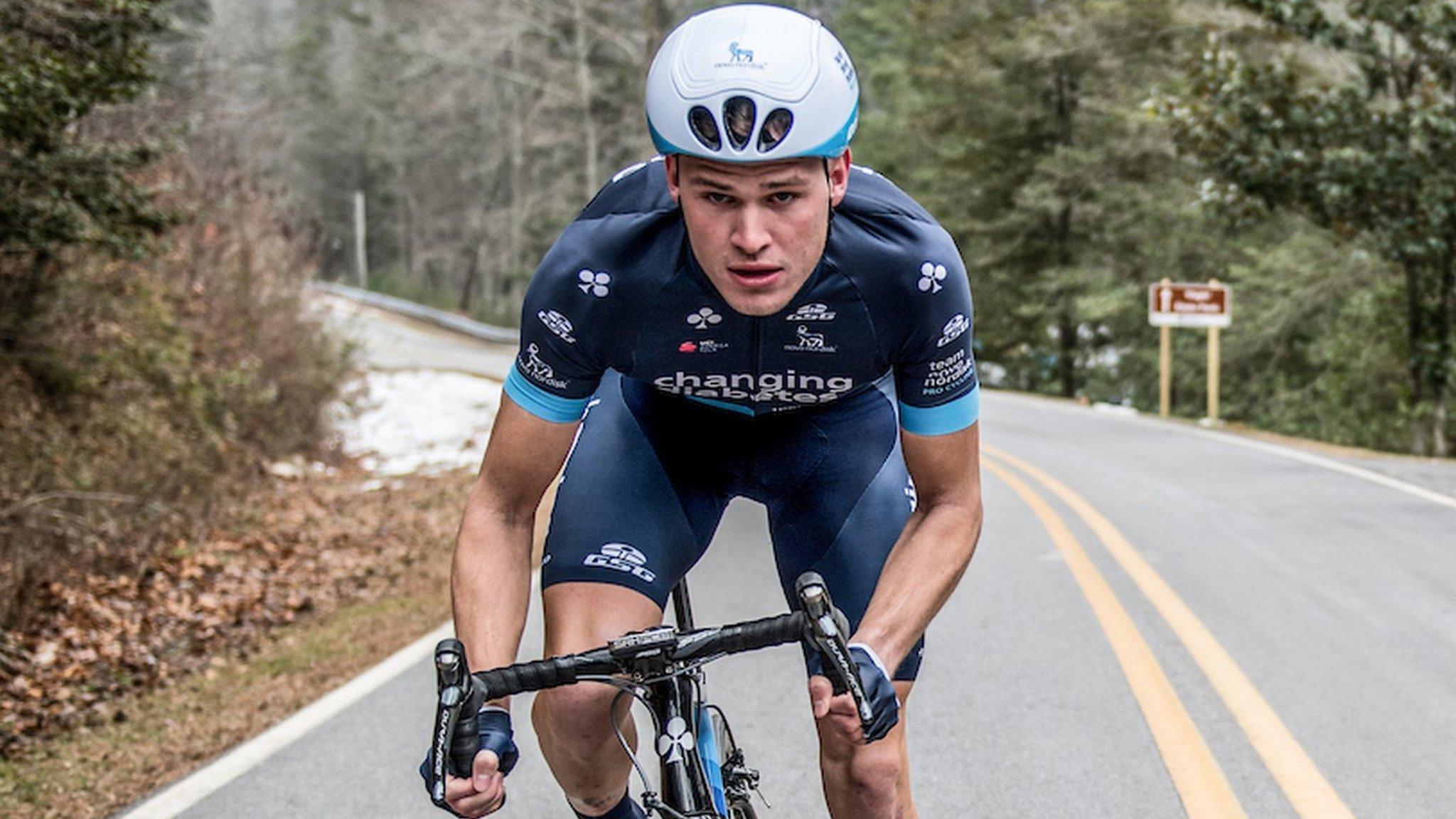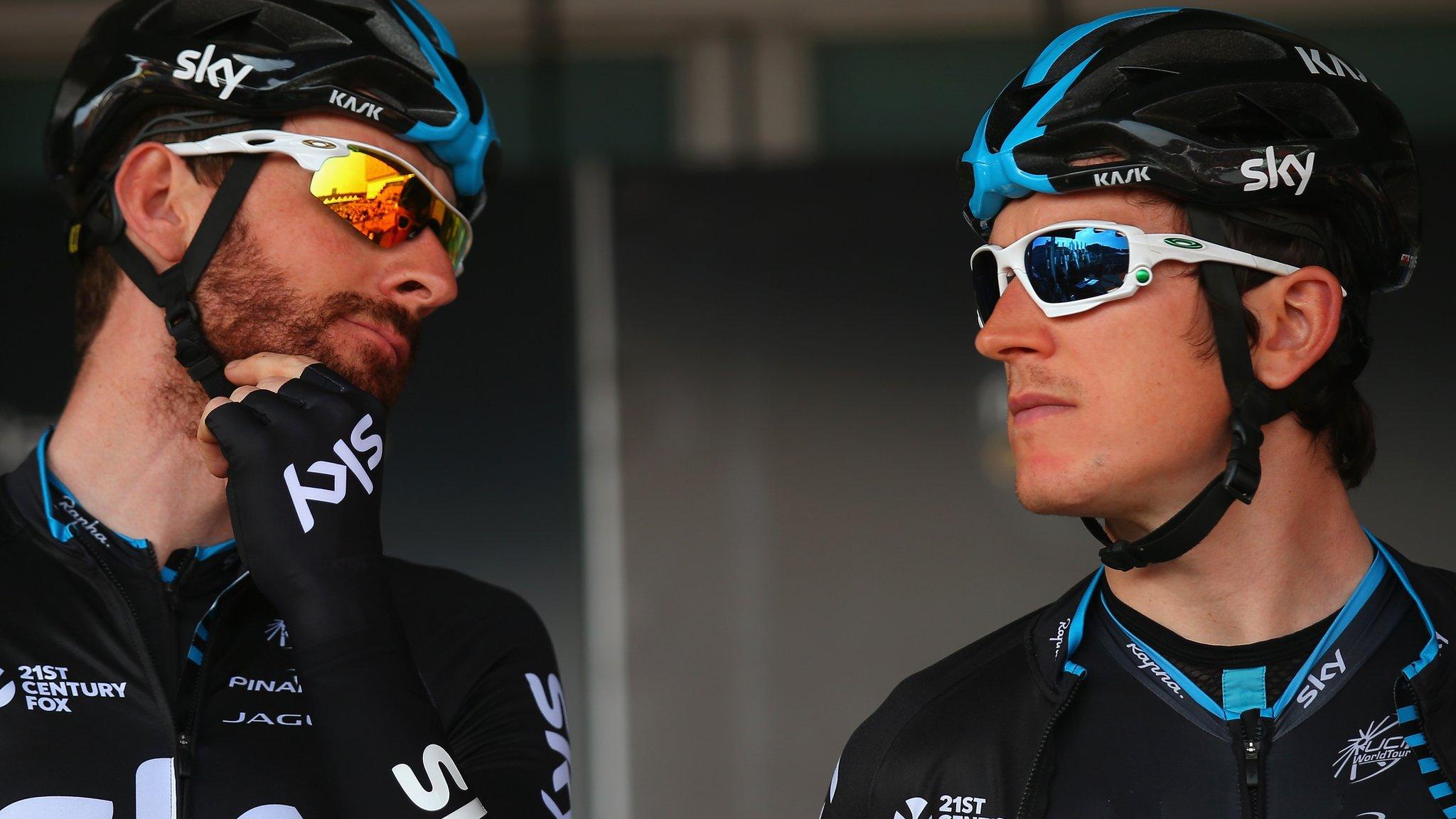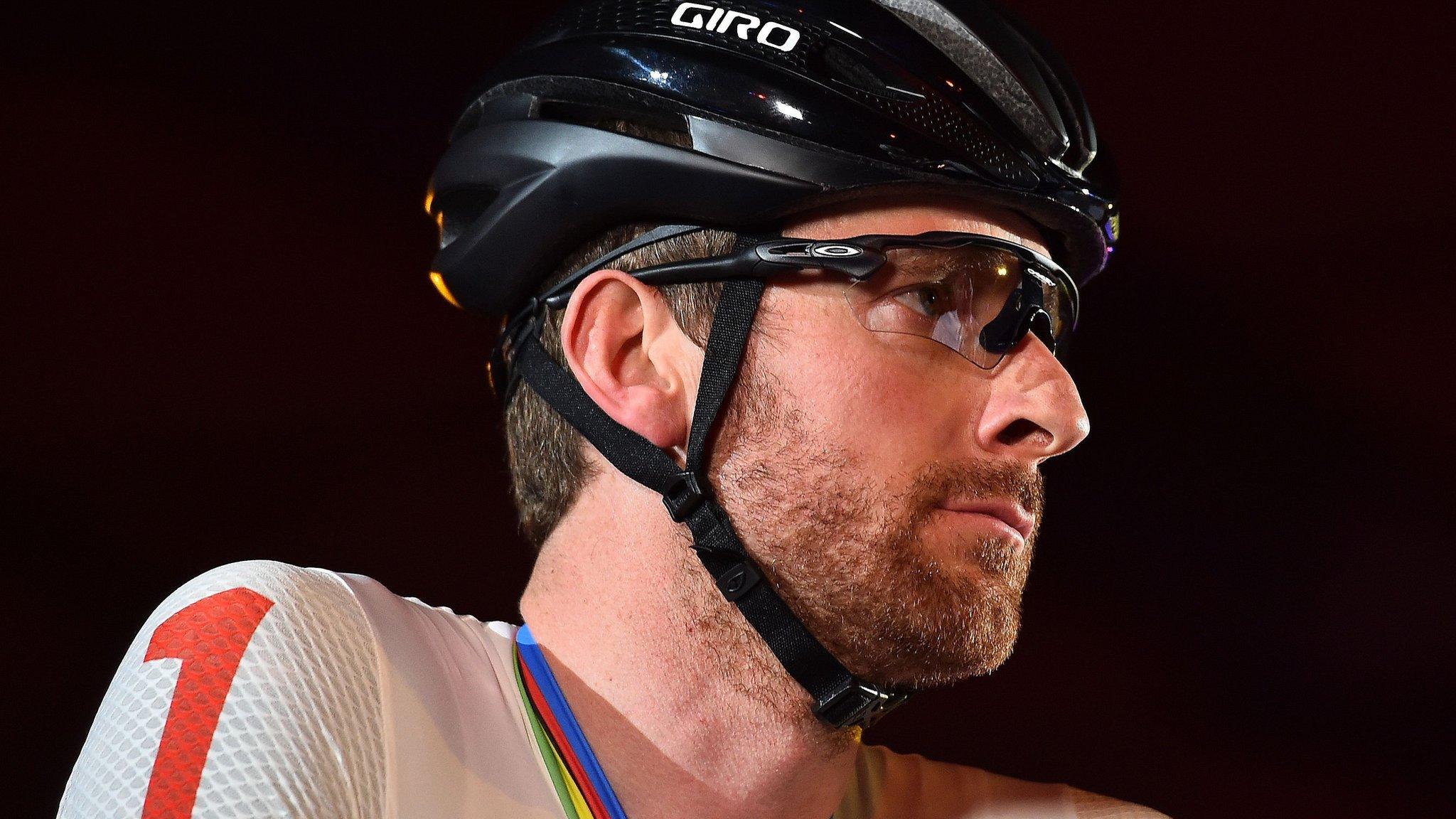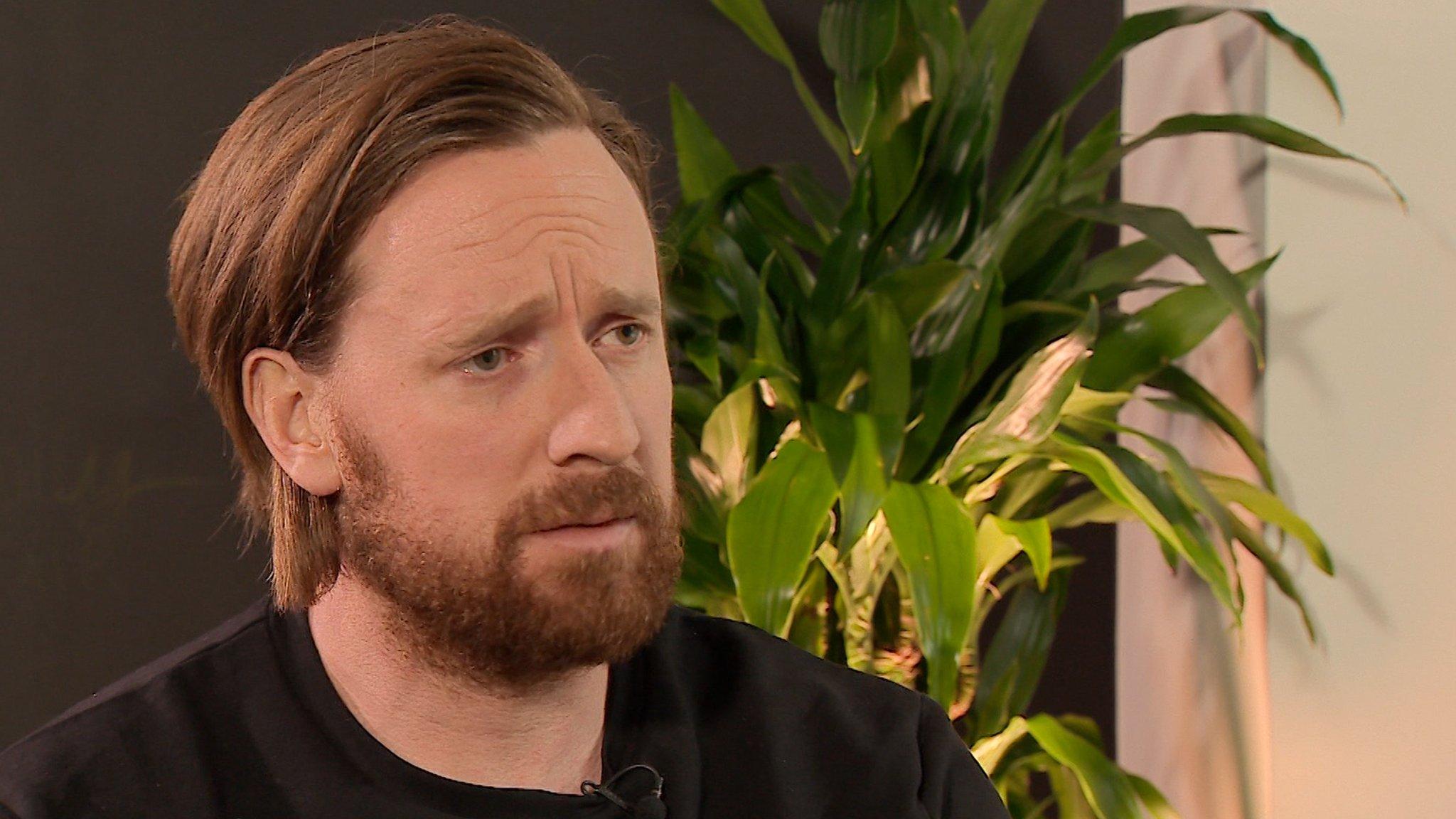Doping in sport: Dr Richard McLaren supports keeping TUEs
- Published
TUEs system is necessary but it's being abused - Mclaren
Athletes should be allowed to take otherwise banned drugs for medical reasons, says the man who investigated state-sponsored doping in Russia.
Dr Richard McLaren said therapeutic use exemptions (TUEs) "have a place in sport".
But he told BBC Radio 4's Today programme they "need to be policed carefully" by medical practitioners.
A recent report by MPs claimed cycling outfit Team Sky and Sir Bradley Wiggins - Britain's most decorated Olympian and a Tour de France winner - had used TUEs to enhance performance.
Both Sky and Wiggins strongly rejected the findings of the Digital, Culture, Media and Sport select committee, which said they "crossed an ethical line" by obtaining TUEs for boosting performance and not medical need.
Canadian law professor and sports lawyer McLaren's report concluded 1,000 athletes across 30 sports benefited from Russia's doping programme between 2011 and 2015.
It led to Russia being partially banned from the 2016 Olympics in Rio, while the country incurred a blanket ban for the Paralympics in 2016 and the 2018 Winter Olympics and Winter Paralympics in South Korea.
However, athletes from Russia could compete as neutrals at Pyeongchang 2018 if they could prove they were clean. Following the Games, the International Olympic Committee suggested the ban would be lifted on the condition there are no further doping violations.
"There's nothing wrong legally with the prescription of the TUE," McLaren said. "It's the way it's being used and that's where the ethics come into it.
"The athlete has to use it on the basis that it's granted by the medical personnel and not abuse it."
We did not cross the ethical line - Wiggins
'System is being abused'
McLaren said he would not describe the system as "broken" but believes it requires "significant reform".
Asked in a later interview by the BBC whether he felt the process was being abused, he said: "It absolutely is, I don't think there's any doubt about it.
"I wouldn't necessarily go to the extent of saying it's a crisis, but I think it's certainly an area that needs to be addressed - and I think the TUE system operates quite differently in different parts of the world as well.
"That depends on who the medical practitioners are that provide and approve these."
What's the background?
Five-time Olympic gold medallist Wiggins, who is an asthmatic, was granted TUEs to take the corticosteroid triamcinolone - which can treat allergies and respiratory issues - shortly before the 2011 Tour de France, his 2012 Tour win and the 2013 Giro d'Italia.
However, his former team-mate at Team Sky, Geraint Thomas, says "it would be a lot simpler just to get rid" of TUEs.
That view was described as "extremely short-sighted" by Phil Southerland, whose first all-diabetic professional cycling, Team Novo Nordisk, all race with TUEs for insulin.
David Lappartient, the president of world cycling's governing body the UCI, has said the fallout from the Team Sky saga had reinforced his concerns about the use of TUEs.
He has called on the World Anti-Doping Agency (Wada) to ban corticosteroids and painkiller tramadol, a stance supported by the Movement for Credible Cycling (MPCC)., external
Members of the MPCC, a voluntary anti-doping union involving seven of the 18 World Tour professional teams, choose not to compete for eight days after being treated with corticosteroids, even when they have been given a TUE. Team Sky is not a member.
The issue about the use of TUEs was exposed when a group of hackers, known as Fancy Bears, started releasing the medical records of some of the world's biggest sports stars, stolen from the Wada database.
They claimed TUEs were "licences for doping".
Russian sports being held 'hostage'
Meanwhile, Russia's sports minister Pavel Kolobkov told the TASS news agency, external that the country's "sports remains hostage", despite the Court of Arbitration for Sport (Cas) overturning the Olympic life bans of 28 Russian athletes.
Cas said that in 28 cases evidence was "insufficient" to prove doping, a decision International Olympic Committee chief Thomas Bach called "extremely disappointing and surprising".
"When 28 of our athletes were cleared, the decision was made by an independent court, it was a meaningful judicial process, involving witnesses, our athletes, experts and testimonies provided by McLaren and [whistleblower Grigory] Rodchenkov," said Kolobkov.
"The decision speaks for itself, they have been cleared by professional judges.
"If they demand that we recognise the McLaren report, it means there is no evidence and demands are taking the place of real evidence."
- Published19 March 2018

- Published8 March 2018

- Published5 March 2018

- Published6 March 2018
